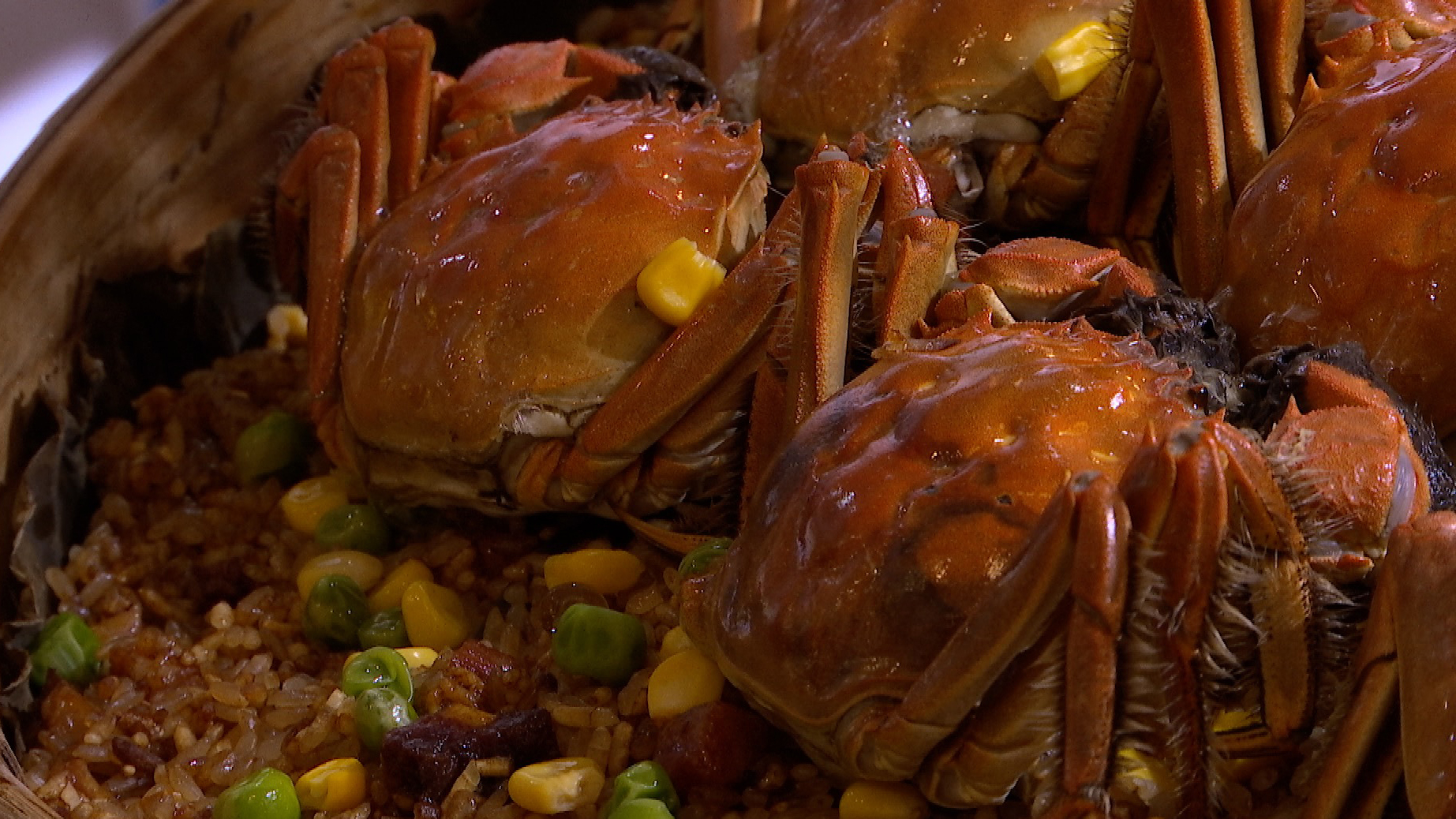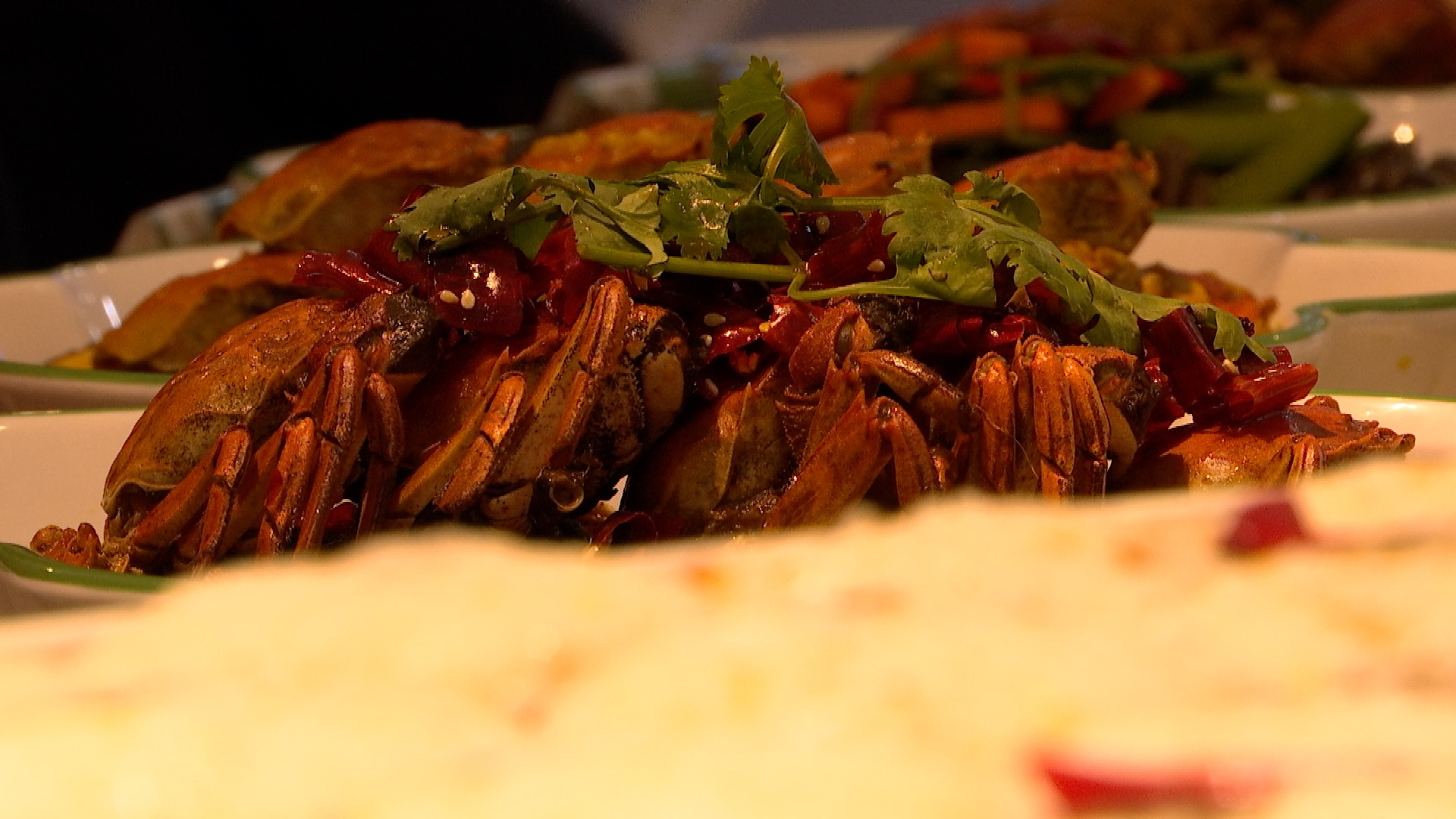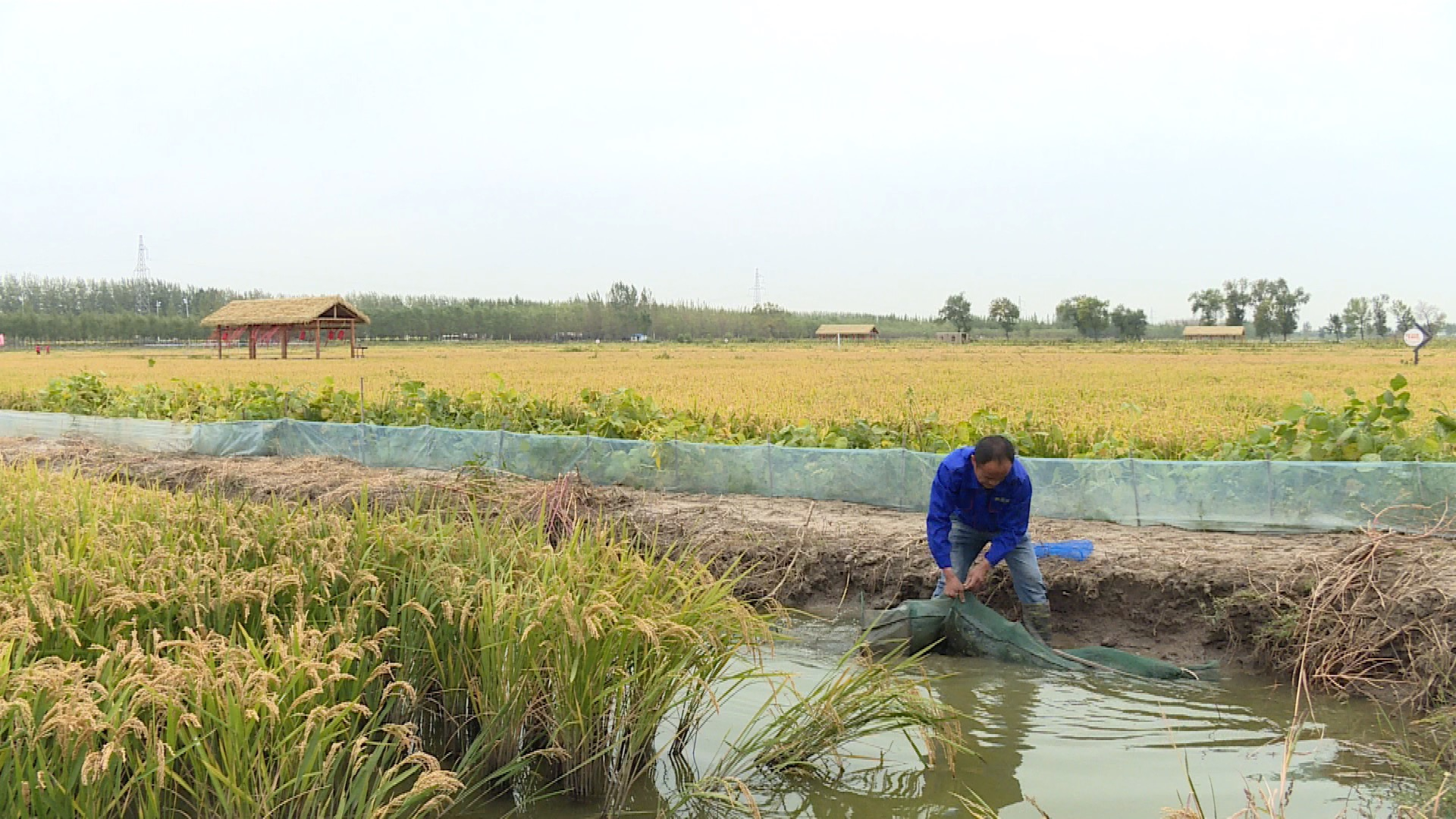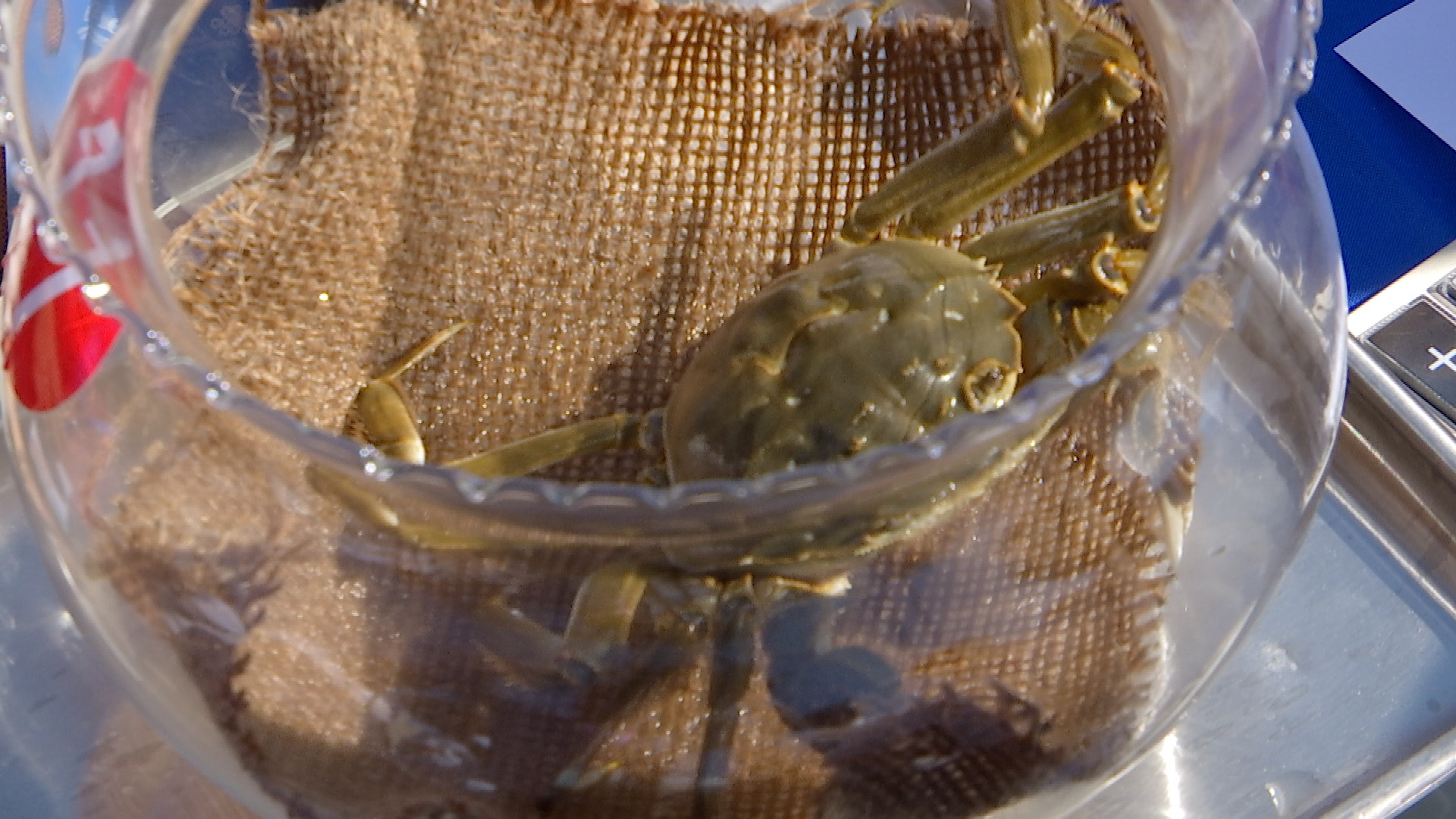02:51

Every year at the autumn equinox in China, the city of Panjin in northeast China's Liaoning Province enjoys the succulent, delicate, unmistakeable taste of Chinese mitten crabs. It is when these hairy crustaceans are their meatiest and most abundant. And the day also marks the culmination of what is usually a successful harvest for mitten crab farmers, whose business is now expanding, bringing in more money than ever before.
"Thanks to the mild weather and farmers' hard work, this year we will have a bumper harvest of history," said Han Yinglin, secretary-general of Panjin River Crab Association. This year, the city's 1,000 square kilometer breeding area, made up of some of China's purest waters, is expected to produce 75,000 tons of crabs, making nearly 60 million U.S. dollars of value. It makes Panjin quite the crab kingdom in northern China.

Mitten crab cuisine at Panjin's Harvest Festival celebration. /CGTN Photo
Mitten crab cuisine at Panjin's Harvest Festival celebration. /CGTN Photo
Crab farm owner Wei Wei, like many of his peers in Panjin, has been raising crabs in paddy fields for a decade. The non-pollution way of rearing crabs along with rice started in the 1980s. Today, these co-cultured products have become the best known and best selling Panjin crabs. And new methods have also been introduced into crabbing business. Wei said he has developed his own brand and online selling platforms as well as agri-tourism on his farm. "That all allows me to earn more," he said.

Crab farmer Wei Wei working on his rice-crab co-cultured farm. /CGTN Photo
Crab farmer Wei Wei working on his rice-crab co-cultured farm. /CGTN Photo
Crabbing has gradually grown into a considerable part of farmers' family income throughout years. It is estimated that crab sales can bring an average revenue of 3,000 yuan (421 U.S. dollars) to each rural household in Panjin in 2019. Besides, an industrial chain has formed around Panjin's river crab breeding, including healthy breeding, bait production, e-commerce business, catering and recreational services. That brings considerable economic, ecological and social benefits.

Farmers weigh the biggest crabs and compete for the "Crab King" at Panjin's Harvest Festival celebration. / CGTN Photo
Farmers weigh the biggest crabs and compete for the "Crab King" at Panjin's Harvest Festival celebration. / CGTN Photo
The local government seeks to further expand and advance eco-friendly crab breeding. They hope to make Panjin crabs the winner in the national river crab market with exclusive competitiveness. "Our internet-based customized breeding brings crabs straight from fields to dining tables. The sales models of Panjin crabs are increasingly diversified," said Guo Wenqiang, deputy director of the municipal bureau of agriculture and rural affairs. But he also pointed put that Panjin still has a long way to go to improve its relatively small online sales compared with other crabbing bases in China.

The "Crab King" at Panjin's Harvest Festival celebration. /CGTN Photo
The "Crab King" at Panjin's Harvest Festival celebration. /CGTN Photo
This year's harvest celebration in Panjin has seen the signing of deals between local crabbing farms, Korean fisheries and Chinese tech companies. It shows great determination to boost e-commerce, cold chain logistics and exports. And for farmers like Wei Wei, he says he's devoting almost all his earnings plus loans to expand his businesses. It may be tough at the beginning. But he hopes his business can grow like his crabs – get bigger and bigger as the crabs shed shells.